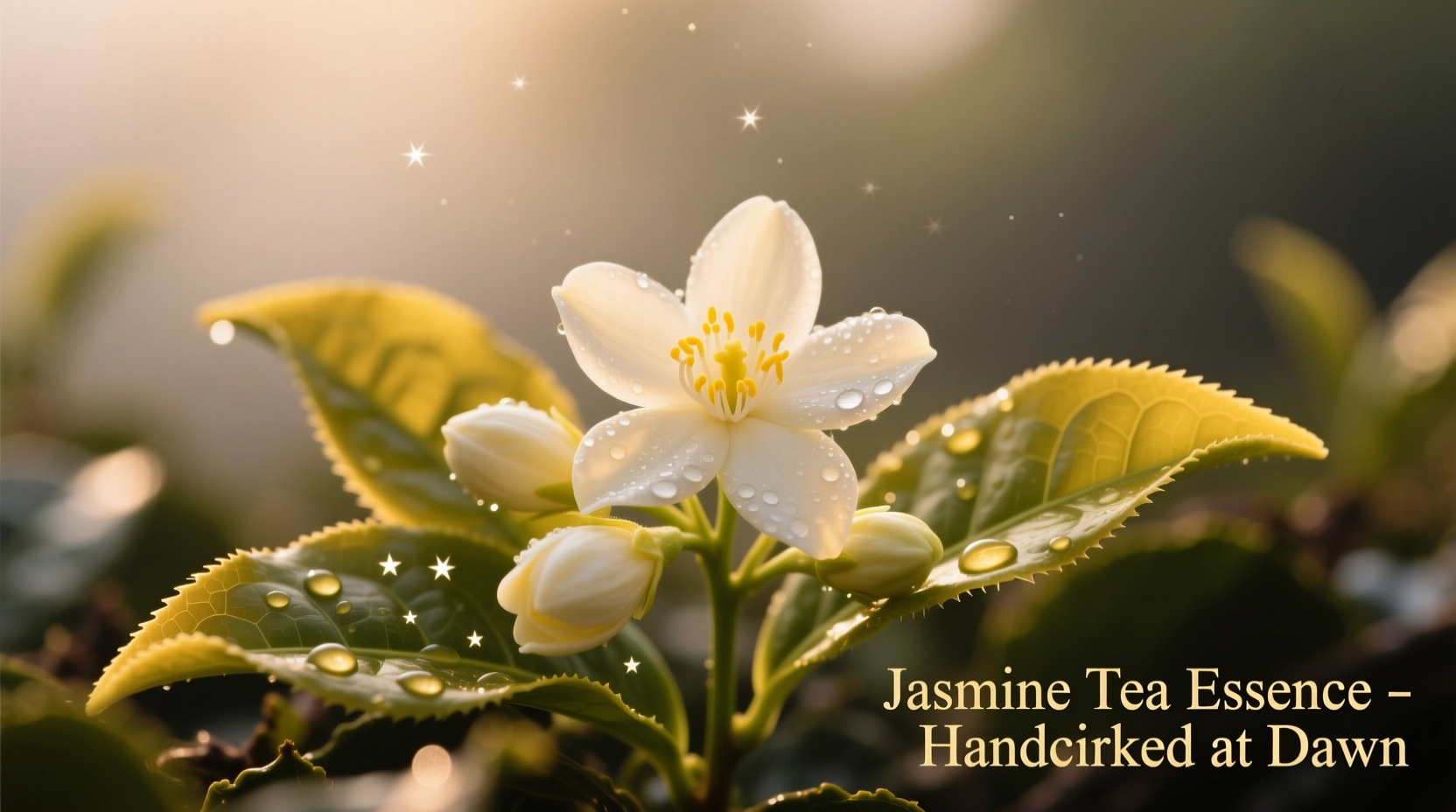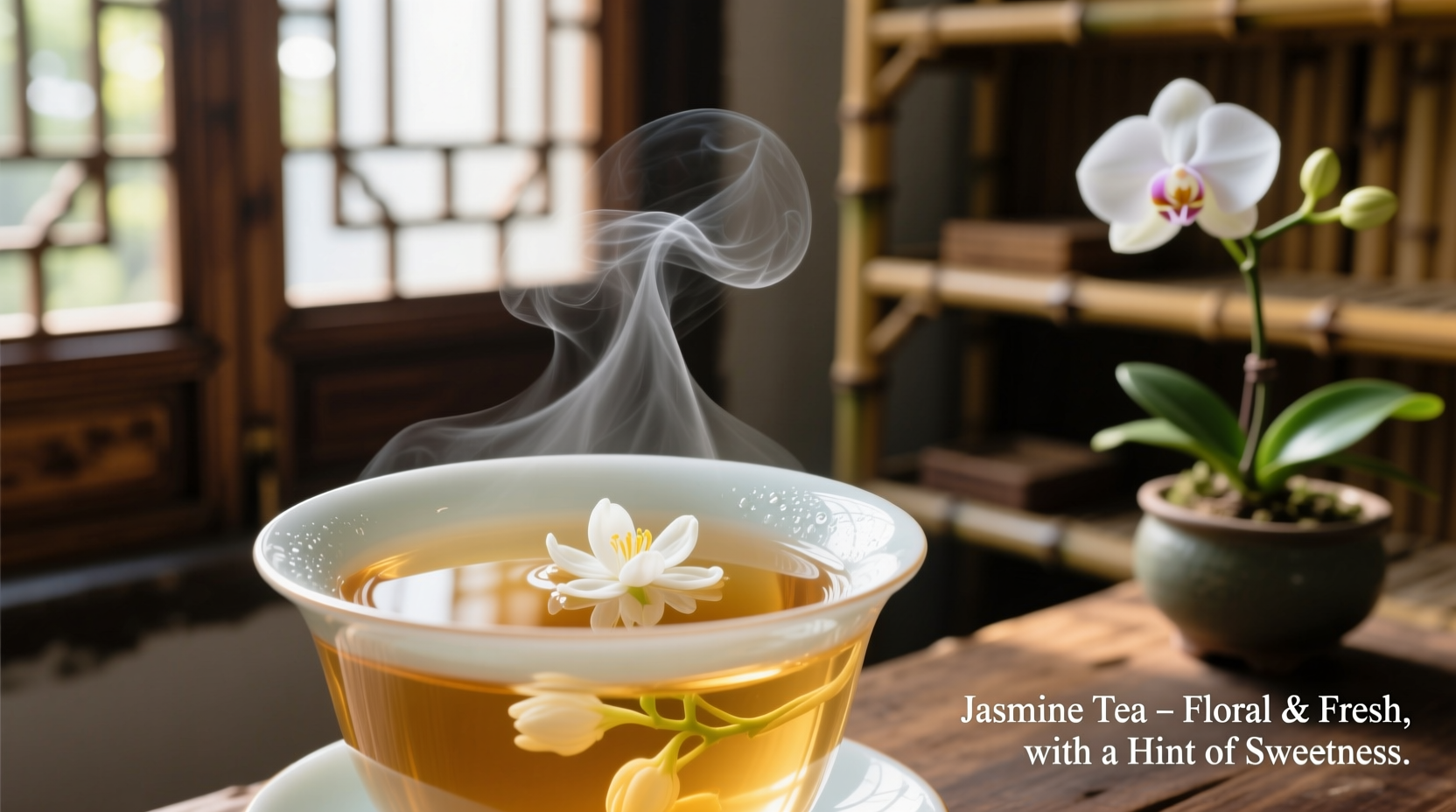Your Complete Guide to Jasmine Tea's Flavor Profile
When you sip authentic jasmine tea, you're experiencing one of the world's most beloved scented teas with a flavor profile refined over centuries. This guide reveals exactly what to expect from premium jasmine tea and how to maximize your tasting experience.
The Sensory Experience of Jasmine Tea
Understanding what does jasmine tea taste like requires exploring all five senses. The moment you open a container of quality jasmine tea, you're greeted by an intense floral aroma that fills the air. When brewed properly, the liquid presents a pale golden color that hints at its gentle nature.
The initial taste delivers a pronounced floral note that's remarkably natural—not perfumey or artificial. Beneath this floral layer lies the foundation of the tea base, typically a high-quality green tea with subtle vegetal or grassy undertones. The finish is clean and refreshing with a lingering floral sweetness that doesn't coat your mouth.
Unlike artificially flavored teas, authentic jasmine tea achieves its signature jasmine tea taste profile through a traditional scenting process where tea leaves absorb the fragrance of blooming jasmine flowers. This creates a complex flavor that evolves as you drink, with the floral notes becoming more pronounced in subsequent infusions.

How Production Affects Jasmine Tea Flavor
The distinctive what is jasmine tea flavor experience depends heavily on production methods. Traditional Chinese jasmine tea undergoes a meticulous scenting process:
| Production Stage | Impact on Flavor |
|---|---|
| Tea base selection | Higher quality green tea bases provide smoother, more complex underlying flavors |
| Flower quality | Fresh, night-blooming jasmine flowers yield the most intense, natural fragrance |
| Scenting process | Multiple scenting cycles create deeper, longer-lasting floral notes |
| Storage conditions | Proper humidity and temperature prevent flavor degradation |
According to the Tea Association of the USA, authentic jasmine tea requires at least one scenting cycle, but premium varieties undergo three to seven cycles for maximum flavor integration. This traditional method explains why high-quality jasmine tea maintains its floral character through multiple steepings.
Jasmine Tea vs. Other Floral Teas
Understanding how does jasmine tea taste compared to other teas helps set proper expectations. While many floral teas exist, jasmine stands apart:
- Jasmine vs. Rose tea: Jasmine offers a brighter, more citrusy floral note while rose tea has deeper, wine-like floral characteristics
- Jasmine vs. Earl Grey: Bergamot in Earl Grey creates a sharper citrus flavor compared to jasmine's softer floral profile
- Jasmine vs. plain green tea: The jasmine scenting adds floral complexity while mellowing the grassy notes of standard green tea
A 2023 sensory analysis published in the Journal of Food Chemistry confirmed that jasmine tea contains unique volatile compounds responsible for its characteristic scent, with linalool and benzyl acetate being primary contributors to its floral aroma profile.
Factors That Influence Jasmine Tea Flavor
Your experience of what jasmine tea tastes like depends on several variables:
Brewing Temperature
Water that's too hot (above 175°F/80°C) scalds the delicate leaves, releasing bitter compounds. The optimal temperature range of 160-175°F (70-80°C) preserves the floral sweetness.
Steeping Time
Oversteeping beyond 2-3 minutes creates astringency. Shorter steeps (1-2 minutes) highlight the floral notes while longer steeps emphasize the tea base.
Tea Quality
Lower quality versions often use artificial flavorings that create an overwhelming, one-dimensional taste. Authentic jasmine tea shows complexity and balance between floral and tea notes.
Common Misconceptions About Jasmine Tea Flavor
Several myths persist about jasmine tea flavor characteristics:
- Myth: Jasmine tea contains added sugar
Fact: The perceived sweetness comes from the floral aroma enhancing our perception of sweetness - Myth: All jasmine tea tastes strongly floral
Fact: Quality varies significantly—premium versions offer balanced flavor while low-quality versions can be overpowering - Myth: Jasmine tea is a herbal tea
Fact: It's almost always made with a green tea base, though white and black tea bases are occasionally used
Perfecting Your Jasmine Tea Experience
To fully appreciate what jasmine tea tastes like, follow these professional tips:
- Use fresh, filtered water for brewing
- Measure 2-3 grams of tea per 6 ounces of water
- Brew at 160-175°F (70-80°C) for 1-3 minutes
- Use a porcelain or glass teapot to appreciate the color
- Enjoy without milk to experience the full flavor profile
- Try multiple infusions—premium jasmine tea often improves with subsequent steeps
As noted by tea experts at the China Tea Culture Institute, "The finest jasmine teas reveal different flavor dimensions with each infusion—the first highlights the floral notes, the second balances floral and tea characteristics, and the third showcases the tea base with subtle floral undertones."
When Jasmine Tea Might Taste Different Than Expected
Several factors can alter the jasmine tea taste experience:
- Storage conditions: Exposure to light, air, or moisture degrades the floral aroma over time
- Tea base variation: Different regions produce green teas with varying grassiness that affects the final profile
- Flower-to-tea ratio: Higher quality versions use more flowers per scenting cycle
- Processing method: Some modern versions use essential oils rather than fresh blossoms
According to sensory data from the International Tea Committee, properly stored premium jasmine tea maintains its characteristic flavor for 12-18 months, while lower quality versions may lose their floral notes within 6 months.
Discovering Your Perfect Jasmine Tea
Your ideal jasmine tea flavor profile depends on personal preference. If you prefer stronger floral notes, look for multi-scented varieties from Fujian province. For a more subtle experience with pronounced tea character, try single-scented versions. The key is finding the balance that delights your palate while experiencing this centuries-old tradition.











 浙公网安备
33010002000092号
浙公网安备
33010002000092号 浙B2-20120091-4
浙B2-20120091-4